Search Results
Showing results 21 to 31 of 31

Geyser
Source Institutions
This Exploratorium activity can be used in many contexts because geysers are great opportunities for learning about heat and temperature changes as well as geological/space science phenomena.
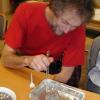
Electrostatic Water Attraction
Source Institutions
In this activity, learners conduct a simple experiment to see how electrically charged things like plastic attract electrically neutral things like water.
Build A Hydrometer
Source Institutions
In this activity, learners will explore how a hydrometer works by building a working model and conducting experiments.
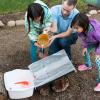
Runaway Runoff
Source Institutions
When it rains, water can collect on top of and seep into the ground. Water can also run downhill, carrying soil and pollution with it.
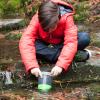
Window Under Water
Source Institutions
Glare from the sun and ripples from the wind can make it hard to see what's below the surface of a body of water.

"Boyle-ing" Water
Source Institutions
In this activity, learners explore Boyle's Law and discover that water will boil at room temperature if its pressure is lowered.

Dip Dip, Hooray
Source Institutions
Lakes, streams and other freshwater bodies are a habitat for lots of living things, big and small.

Water Treatment
Source Institutions
Water treatment on a large scale enables the supply of clean drinking water to communities.
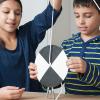
Clear Water, Murky Water
Source Institutions
How do scientists measure how clear or murky water in a lake is? How does water clarity (clearness) affect what lives in the lake?
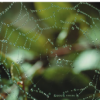
Stick to It: Adhesion II
Source Institutions
Water sticks to all kinds of things in nature — flowers, leaves, spider webs - and doesn't stick to others, such as a duck's back.
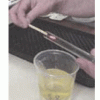
Having a Gas with Water
Source Institutions
In this activity, learners construct a simple electrolysis device. With this device, learners can decompose water into its elemental components: hydrogen and oxygen gas.
